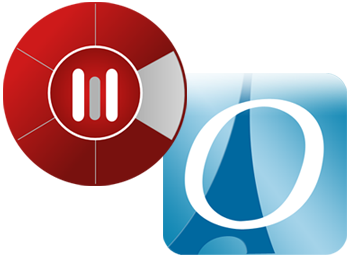History
Modelio has a track record of almost 30 years

Product History
Modelio is the result of almost 30 years of experience in Object-Oriented modeling, methodology, model-driven development and case tool architecture. Modelio has been designed to make modeling a pleasure, through its efficient ergonomics, its built-in consistency checks, its internal MDA (Model Driven Architecture) capacities and its model management features supporting the organization of large-scale models for large teams.
Modelio is based on the architecture of Objecteering, a modeling tool that's been at the cutting edge of innovation and model-driven development for almost 30 years. Objecteering was the first tool to support MDA for UML® through the profile technique, and it covers the entire modeling lifecycle, including requirements management, report and documentation production and code generation. This rich experience and expertise has contributed to the development of Modelio, enabling you to produce models, code and documentation that are at the very cutting edge of the field.
Milestones
2021
Modelio supports Java 11.
2020

Modelio is available in SaaS and has a new logo.
2019
The Softeam company integrated Docaposte. So Modelio is now a product of the Docaposte catalog.

2019
Modelio introduces a new tool dedicated to GDPR modeling support: Privaciz Model.
2016
Modelio introduces ArchiMate support.
2015
Modelio Studio: A new tool dedicated to define extensions without programming allowing to package modules quickly.
2014
Constellation: Modelio introduces a new innovative tool dedicated to the governance of models and projects within enterprises.
2011
The heart of Modelio becomes open source as well as many modules. Modelio is thus getting closer to its growing community and involves it even more in its evolution.
2009

Launch of Modelio replacing Objecteering. Modelio is now based on a Java architecture.
2008
Objecteering presents the Objecteering SOA Solution, thereby covering the entire modeling scope in a single tool.
2002
Objecteering releases the "Requirement Analysis" module, providing support of requirement analysis integrated into a UML modeling tool.
2001
Objecteering introduces the UML Profile Builder tool, making it the first tool to support MDA for UML through the profile technique.
1996
Objecteering supports the "hypergenericity" technique, the precursor of MDA.
1991

Launch of Objecteering, tool supporting Object-Oriented modeling and C++ model-driven development.
Company Background
Modelio is developed and maintained by Softeam, a Docaposte brand through its Software BU. Based in Paris, France, Softeam BU Software provides training, coaching and consulting in EA, BPM, IS, software modeling and MDA tool customization to adapt Modelio to specific contexts and organizations. Its international support team and its network of partners can help make a project successful throughout the world.
Softeam BU Software is a major player in the field of object technologies, and the first European company to become a contributing member of the OMG (Object Management Group) in 1996. Softeam's Software BU, through its Modelio solution, actively participates in the definition of current and future standards, such as Model Driven Architecture (MDA), Software Process Engineering Metamodel (SPEM), UML2, QVT, BPMN2 and UPMS (SOAPro).
SOFTEAM BU Software belongs to Softeam, a specialist company that combines expertise close to its customers and technical expertise in digital breaks.